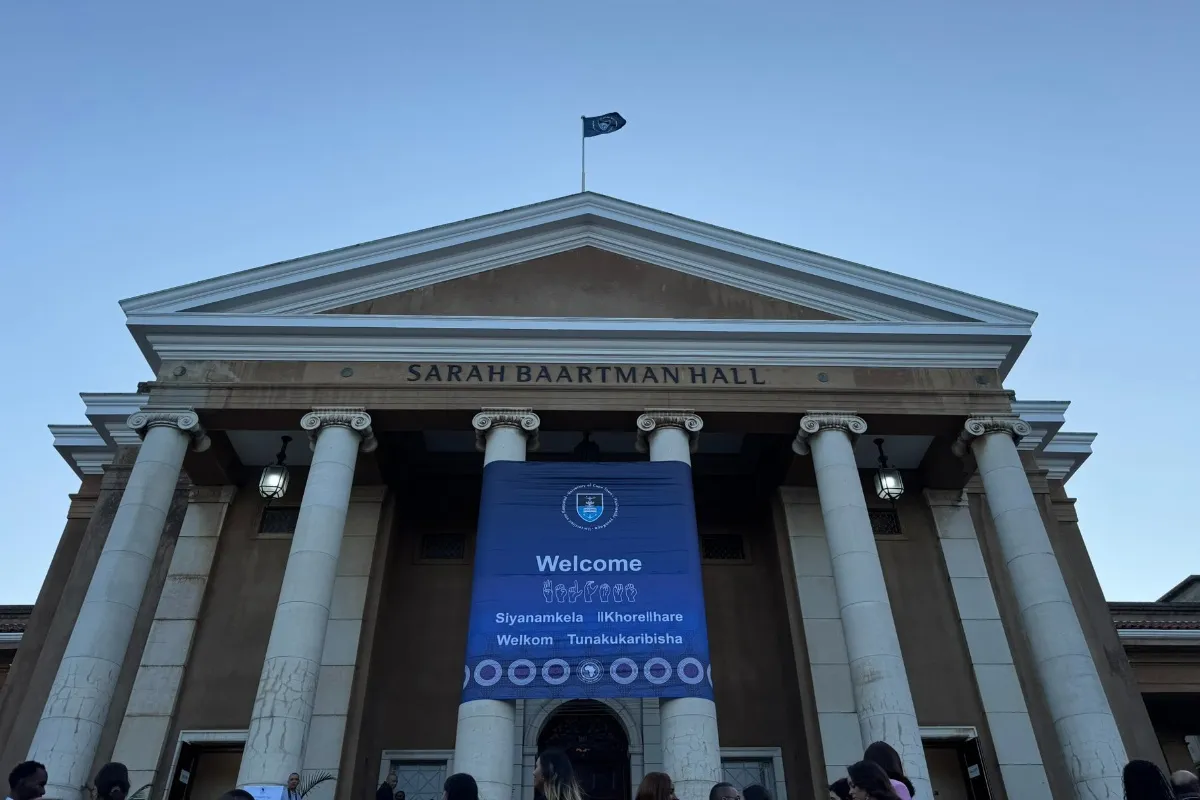
UCT officially renames ‘Jammies’ Hall
The University of Cape Town (UCT) officially renamed its iconic Jameson Memorial Hall to Sarah Baartman Hall.

The University of Cape Town (UCT) marked a significant step in its transformation journey by renaming its “Jammies” Hall to Sarah Baartman Hall.
Students, staff, alumni, and dignitaries attended Wednesday’s renaming ceremony.
The event honoured Sarah Baartman, a Khoi woman whose life story symbolises resilience and the enduring strength of the human spirit in the face of profound exploitation and injustice.
Delays to the renaming process
In 2018, UCT’s Council initiated the process to rename the hall as part of broader efforts to make the university’s spaces reflect inclusivity and recognise South Africa’s diverse heritage.
Several factors, including the COVID-19 pandemic, delayed the official change.
UCT incorporated this deeply symbolic commemoration into its spring 2025 graduation season, which also coincides with South Africa’s Heritage Month.
UCT Vice-Chancellor, Professor Mosa Moshabela, said Baartman’s life story illustrates both the brutality of colonial exploitation and the enduring human spirit in the face of unimaginable violation.
UCT explained that the #RhodesMustFall movement’s moral urgency sparked the decision to rename Jameson Hall.
Months of consultation with Khoi and San communities, academics, social justice activists, and students made the renaming possible.
Who was Sarah Baartman?
Sarah Baartman, born in the Eastern Cape in the late 18th century, was taken to Europe, where people objectified and dehumanised her by putting her body on display for public spectacle.
French museums continued to exhibit her remains until South Africa eventually repatriated them in 2002.
“Her name on this building calls us to confront injustice with honesty and courage,” said Moshabela.
“It reminds us of the violence of colonialism, the silencing of indigenous voices, and the mutilation of the female body in ways that denied humanity.”
“It also calls us to healing: to create spaces where remembrance is linked to justice, where trauma is met with acknowledgement, and where history is engaged openly and responsibly.”
